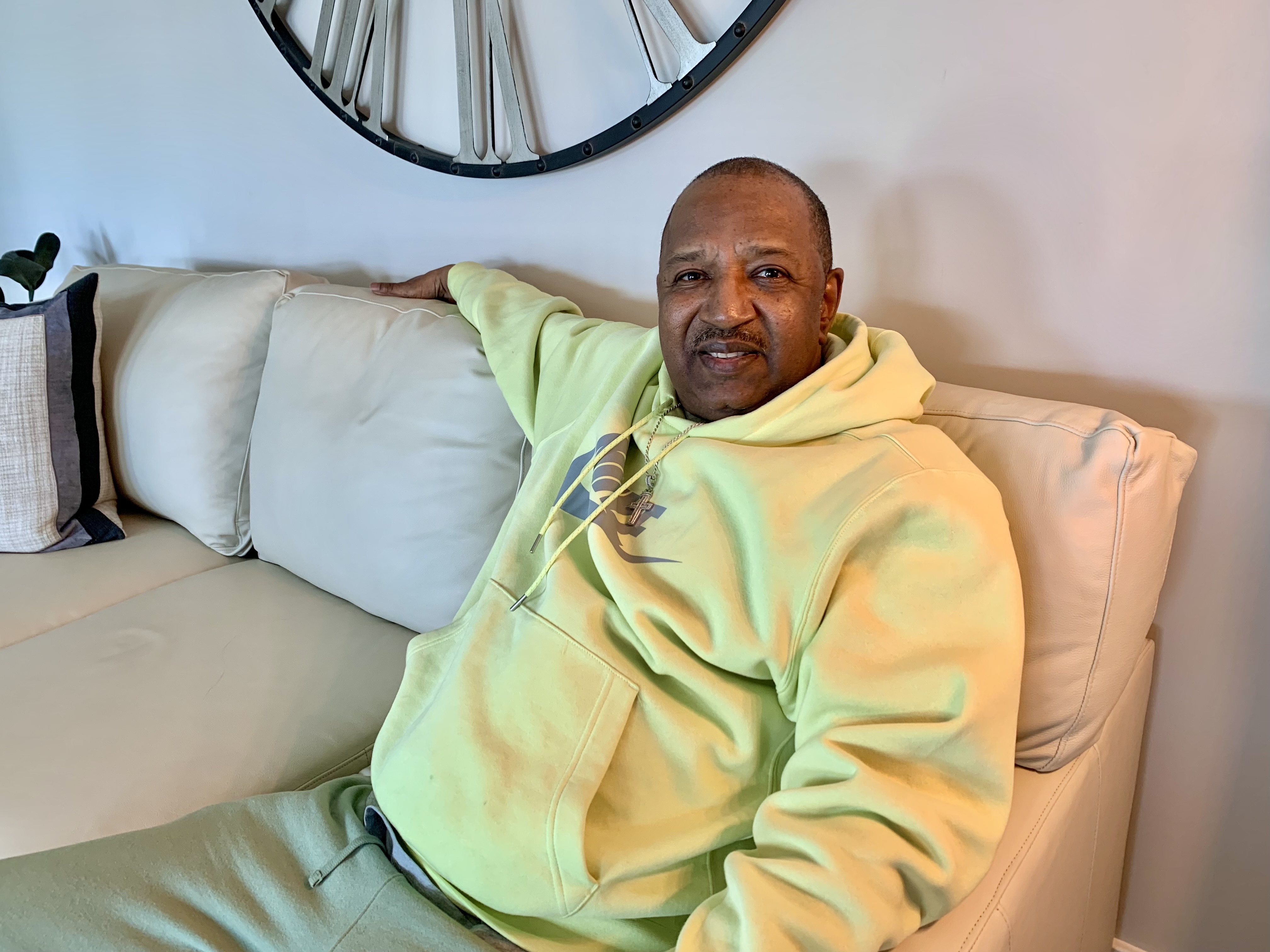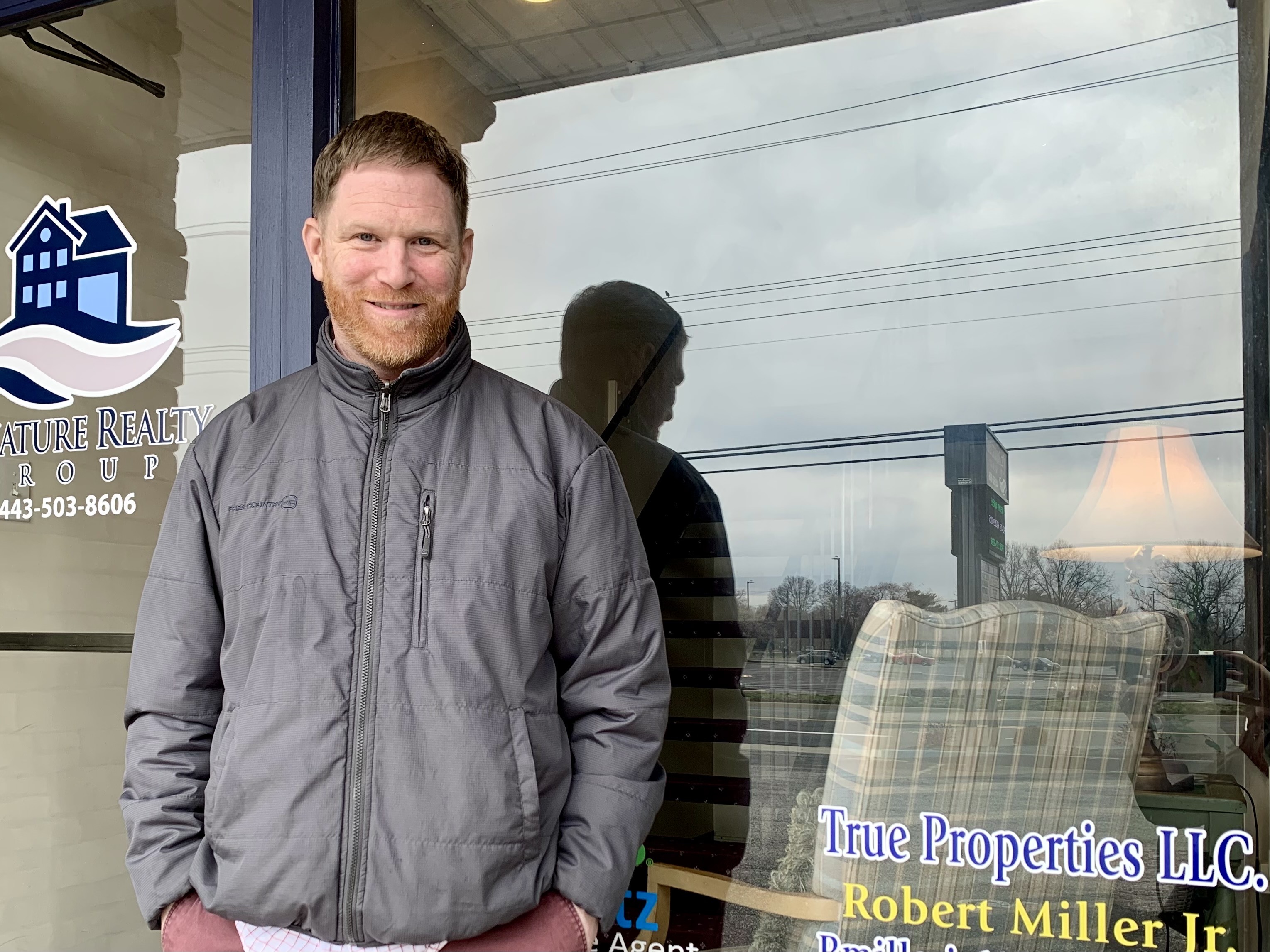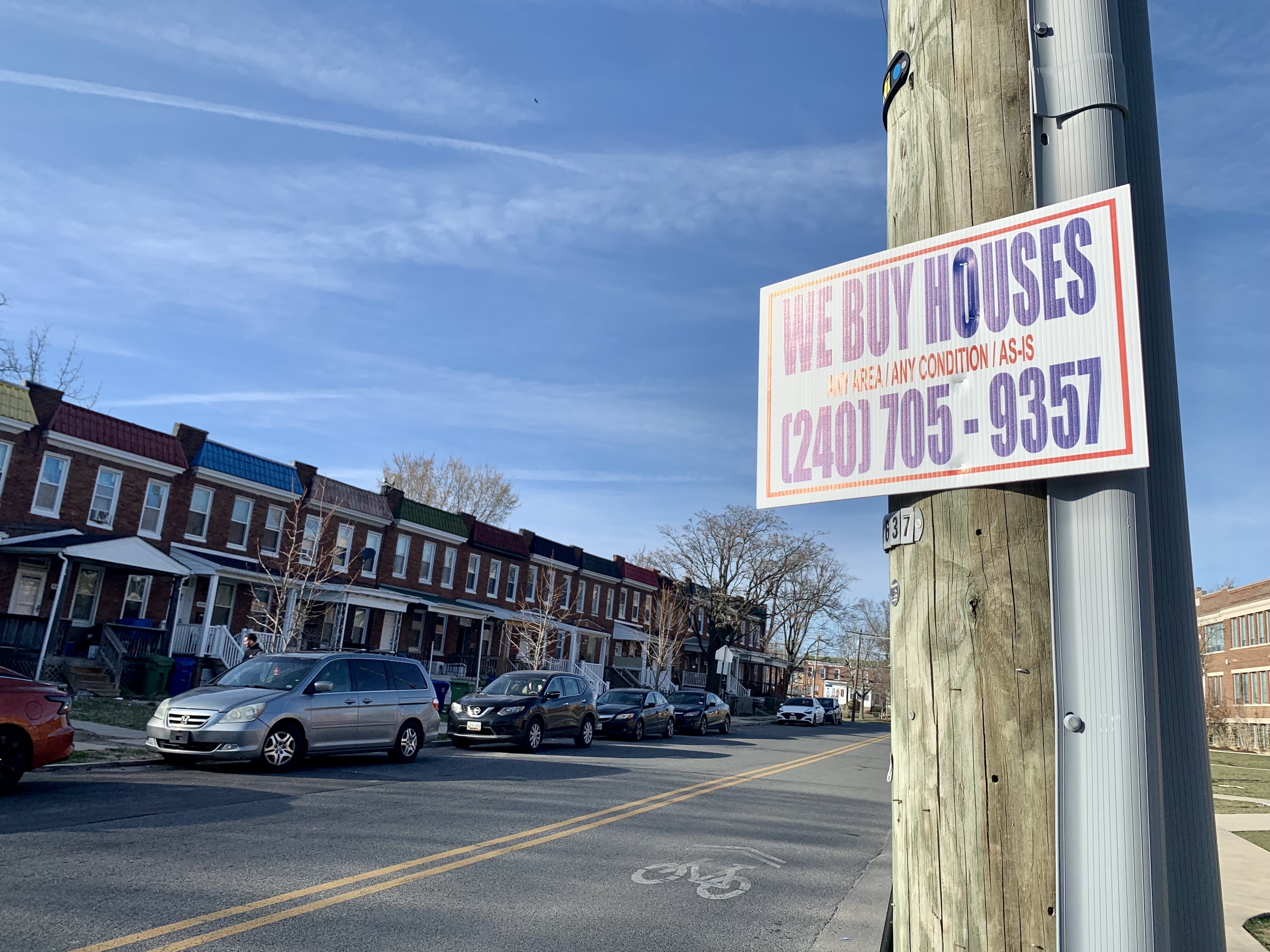Nicholas Chavez and his wife, Bunny Cabean, lived in a two-story brick row house in Baltimore for 35 years, and they took great care of it. Over the years, they redid the kitchen and bathroom, remodeled the basement and replaced doors and windows.
“It was a nice, comfortable house, and it served its purpose,” Chavez said.
As they got closer to retirement — Chavez from the city’s Department of Public Works and Cabean from her job as a pharmacy technician — they were ready for a change. They felt like the block was declining. Longtime neighbors had moved away. The house didn’t feel as comfortable anymore.

“I’m 70,” Chavez said in a recent interview. “My wife is 63, and going up and down the steps and the tightness of the house — we were tired of it.”
So, they decided to sell the house and move into an apartment outside the city. For years, Chavez had seen the signs posted around Baltimore that read “We Buy Houses.” Often they’re posted by real estate wholesalers, who make money by connecting people who want to sell their homes fast with investors paying cash, frequently at a steep discount to market prices.
Chavez called a bunch of the numbers on the signs and spoke to several people. With two of them, he didn’t like their attitude on the phone. Three made offers Chavez considered too low. Eventually he found a company online called True Properties. Rob Miller Jr. is the company’s founder and president.
“I told him what I wanted,” Chavez said. “He really surpassed what we were asking for.”
Miller didn’t buy the house himself. He signed a contract to buy it for $70,000, and then sold that contract to an investor at a profit.
At Miller’s office in suburban Baltimore, a whiteboard on the wall listed dozens of recent deals. Miller has been investing in real estate since he and his mom saw an infomercial about 20 years ago.

“Everybody that’s in real estate has heard the name Carleton Sheets,” he said. Miller’s mom offered to split the fee with him for one of Sheets’ real estate investing programs, he said, “and the course came in, and I never let it down.”
Sometimes Miller buys distressed properties to fix up and sell or rent out. Other times, he makes money by essentially matchmaking between home sellers and investors. He said yes, people could make more money selling their house through an agent, “but we don’t charge any commission. There’s no fees, no closing costs.”
He takes houses as is, often in pretty bad shape, sometimes filled with junk. People who need to sell quickly are often going through hard times — a divorce, a death in the family, or they might be deep in debt.
“I’m helping people out of situations that are incredible,” Miller said. “It’s not just about the house, you know. We actually care about the people and what you’re going through.”
Others see real estate wholesaling as predatory. Benjamin Preis is a research fellow at Drexel University and co-author of a recent study called “‘We Buy Houses’: You Lose Out.” The researchers found that in Philadelphia, the sale prices of homes sold informally to investors were 51% lower, on average, than comparable houses sold on the multiple listing service.
“The main takeaway is that homeowners who choose to work with a wholesaler are likely missing out on a higher sales price and a higher return on their investment,” Preis said.
He agrees that a seller may have good reasons to work with a wholesaler, like speed and convenience, but he worries that people are missing out on building generational wealth, especially in the historically marginalized neighborhoods where wholesalers tend to operate.
“Clearly, this type of activity is harming longtime homeowners at a time when housing equity should be rising for them,” he said.

“I think the bigger story here is about entire neighborhoods and communities, in cities like Baltimore, that are underserved by the formal housing market,” said Christine Jang-Trettien, a postdoctoral researcher at Princeton University who’s writing a book about informal housing markets in Baltimore.
Because real estate agents depend on commissions, she said, they don’t have much incentive to work in neighborhoods with low home values.
“A lot of homeowners and investors I’ve talked to in poor neighborhoods in Baltimore, they will tell you stories about how they called five to 10 different realtors, and nobody’s picked up the phone for them,” Jang-Trettien said. “It’s near-impossible to find a realtor, and this is kind of where wholesalers come in.”
Nick Chavez, who sold his Baltimore house through a wholesaler, did talk with a real estate agent. She thought they could get maybe $120,000 but said they’d have to repaint and get inspections for lead and asbestos. Then there would be open houses and showings, people coming in and out.
“It’s not worth it to me,” Chavez said.
Chavez seemed unfazed by the idea that they could have made a lot more money. State property records show that after he and Cabean sold the house in May for $70,000, the investor who bought it sold it just a few months later for $175,000. As far as they could tell from the online listing, the investor hadn’t even done much work on the house. City records show the last building permit for the property was issued in 2018.
“We know that’s how it goes,” Cabean said.
As for passing on generational wealth, Chavez said his three grown children are doing well for themselves and weren’t interested in the house.
“If you work your whole life, yeah, you’re looking out for your kids, but I don’t think that you work your whole life to make everything easy for your kids,” he said.
The couple love their new apartment. It’s in a luxury building with an elevator, and there are lots of parks nearby. They said they think the new owner of their old house overpaid.
“It was about us moving on,” Chavez said. “We got what we wanted out of it, and we’re doing OK.”
There’s a lot happening in the world. Through it all, Marketplace is here for you.
You rely on Marketplace to break down the world’s events and tell you how it affects you in a fact-based, approachable way. We rely on your financial support to keep making that possible.
Your donation today powers the independent journalism that you rely on. For just $5/month, you can help sustain Marketplace so we can keep reporting on the things that matter to you.
"behind" - Google News
April 29, 2023 at 04:49AM
https://ift.tt/zamFkDU
Who’s the “we” behind those “We Buy Houses” signs? - Marketplace
"behind" - Google News
https://ift.tt/Roz0WfI
https://ift.tt/DpCSPL7
Bagikan Berita Ini














0 Response to "Who’s the “we” behind those “We Buy Houses” signs? - Marketplace"
Post a Comment